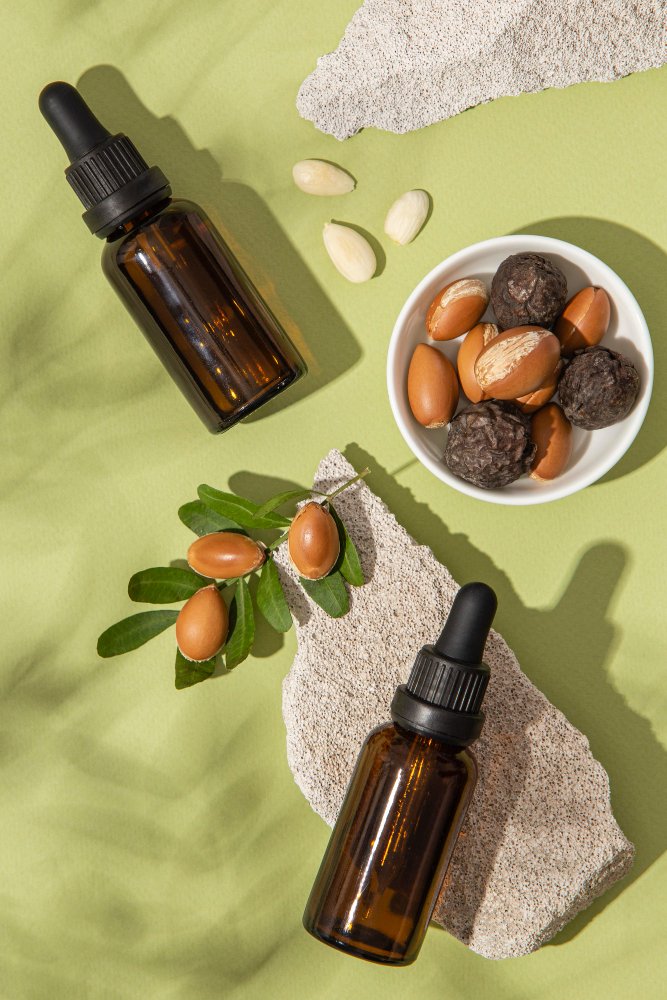What Are the Best Carrier Oils for Mixing Essential Oils In Hair Care?


Healthy and lustrous hair is a goal many of us strive for, and essential oils can be valuable tools in achieving that goal. However, using essential oils directly on your hair or skin can be too potent and may irritate. This is where carrier oils come into play. Carrier oils are gentle, nourishing oils that can dilute essential oils, making them safe for topical application while providing additional benefits for your hair. This blog will explore some of the best carrier oils for mixing with essential oils to enhance your hair care routine.
The Importance of Carrier Oils in Hair Care
Before we delve into the best carrier oils for mixing with essential oils in your hair care routine, let’s understand why carrier oils are crucial.
Dilution
Some highly concentrated essential oils are too potent to use directly on the skin or hair. Carrier oils serve as a diluting agent, reducing the potency of essential oils and making them safe to use.
Nourishment
Carrier oils are not just diluents; they also provide their benefits. The vitamins, antioxidants, and fatty acids in many carrier oils can help nourish and strengthen your hair. If you’re interested, try out carrier oils from The Soapery for nourishing choices in your hair care routine.
Hydration
They aid in moisture retention, so dryness and frizz are avoided. This is especially crucial for those with dry or damaged hair.
Easy Application
Carrier oils make it easier to apply essential oils evenly, ensuring they are distributed throughout your hair or scalp.
Best Carrier Oils for Hair Care

Now, let’s explore some of the best carrier oils for your hair care routine:
Coconut Oil
For a good reason: coconut oil is one of the most preferred carrier oils for hair care. It has a pleasant tropical aroma and is high in fatty acids, penetrating the hair shaft and strengthening and hydrating it. It’s perfect for dry, damaged hair. When mixed with essential oils like lavender, rosemary, or peppermint, coconut oil can promote hair growth and reduce dandruff.
Jojoba Oil
Jojoba oil closely resembles the natural sebum our scalp produces, making it an excellent carrier oil for hair care. It’s lightweight, non-greasy, and helps balance oil production, making it suitable for all hair types. When blended with essential oils such as tea tree, cedarwood, or chamomile, Jojoba oil can soothe an inflamed scalp, enhance hair health, and shine your locks.
Argan Oil
Moroccans call argan oil “liquid gold,” made from argan tree nuts. It’s high in antioxidants, vitamins, and vital fatty acids, making it ideal for mending damaged hair and decreasing frizz. When mixed with essential oils like geranium, ylang-ylang, or frankincense, argan oil can nourish your hair, improve its elasticity, and leave it looking silky and smooth.
Olive Oil
Olive oil has been used as a natural hair conditioner for generations. Vitamins A and E strengthen and prevent broken ends. Olive oil is also great for controlling frizz and boosting moisture. When combined with essential oils like rosemary, lavender, or thyme, olive oil can stimulate hair growth and improve scalp health.
Sweet Almond Oil
Sweet almond oil is another lightweight carrier oil rich in vitamins and minerals. It’s ideal for nourishing and softening the hair without leaving a greasy residue. When mixed with essential oils like peppermint, eucalyptus, or lemon, sweet almond oil can invigorate the scalp, improve circulation, and promote hair growth.
Grapeseed Oil
Grapeseed oil is an excellent option for those with oily hair or a sensitive scalp. It’s light and non-comedogenic, meaning it won’t clog pores. Grapeseed oil contains linoleic acid, which strengthens and prevents hair breakage. Grapeseed oil can balance production and maintain a healthy scalp when combined with essential oils like cedarwood, sage, or lemon.
Castor Oil
Castor oil is renowned for its hair growth-boosting properties. This thick and dense carrier oil is commonly blended with other carrier oils in smaller amounts for optimal results. Castor oil can increase hair thickness, prevent hair loss, and improve hair texture. It’s also beneficial for maintaining a healthy scalp. When blended with essential oils like cedarwood, thyme, or basil, castor oil can be a powerful addition to your hair care routine, promoting hair growth and scalp health.
Mixing Essential Oils with Carrier Oils
For optimal results, utilise a dilution ratio of 1-3% essential oil to carrier oil when blending oils for use on the hair. For example, if you use 1 ounce (30 ml) of carrier oil, add 6-18 drops of essential oil. Be mindful of individual sensitivities and allergies. Conduct a patch test before using the blend on your entire scalp or hair.
Can I Mix Multiple Carrier Oils?
Mix multiple carrier oils to create a custom blend that suits your skincare or haircare needs. Combining different carrier oils can offer a broader range of benefits and properties. Here are some tips on mixing multiple carrier oils:
Choose Complementary Oils
Select carrier oils that complement each other and address your specific skincare or haircare concerns. For example, you want to create a moisturising blend. In that case, you might combine oils like jojoba (light and moisturising) with argan (rich in nutrients) and avocado (deeply hydrating).
Consider the Ratios
The ratio of each carrier oil in your blend will depend on your preferences and the properties of the oils you’re using. Begin with equal portions of each oil and vary the ratios according to how your skin or hair reacts. Remember that some oils are more potent or have a stronger aroma than others, so you may want to use them in smaller quantities.
Blend Thoroughly
Mix the carrier oils thoroughly to ensure a consistent blend. You can use a clean glass bottle or container to store your custom oil blend.
Test The Blend
Before applying the blend to your skin or hair, it’s a good idea to perform a patch test on a small area to check for any adverse reactions or allergies.
Label the Blend
If you create different oil blends for various purposes, label the containers with the ingredients and their intended use to avoid confusion.
Final Thoughts
Using essential oils for hair care can be a game-changer. Still, diluting them properly with carrier oils is vital to ensure safety and effectiveness. The carrier oils mentioned above are some of the best choices for mixing with essential oils to improve the health and appearance of your hair. Avoid scalp sensitivities using high-quality, pure essential, and carrier oils and patch testing before applying new oils. With the right combination, you can unlock the full potential of essential oils and enjoy healthier, more beautiful hair.
People call me Cath! Living the minimalist lifestyle and love minimalist style, beauty and wellness especially YOGA. So hardly support mental health matter of insecurities.


